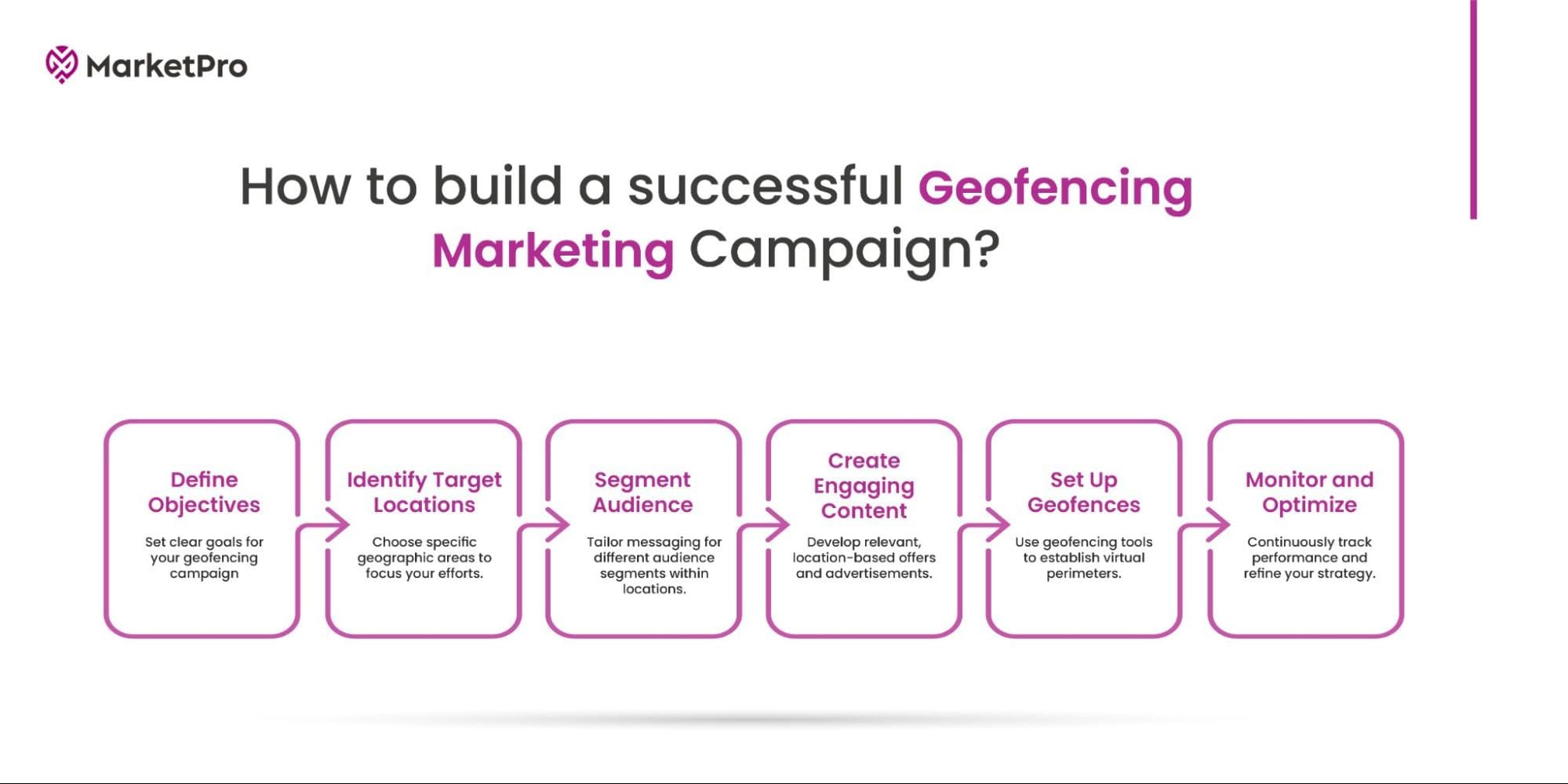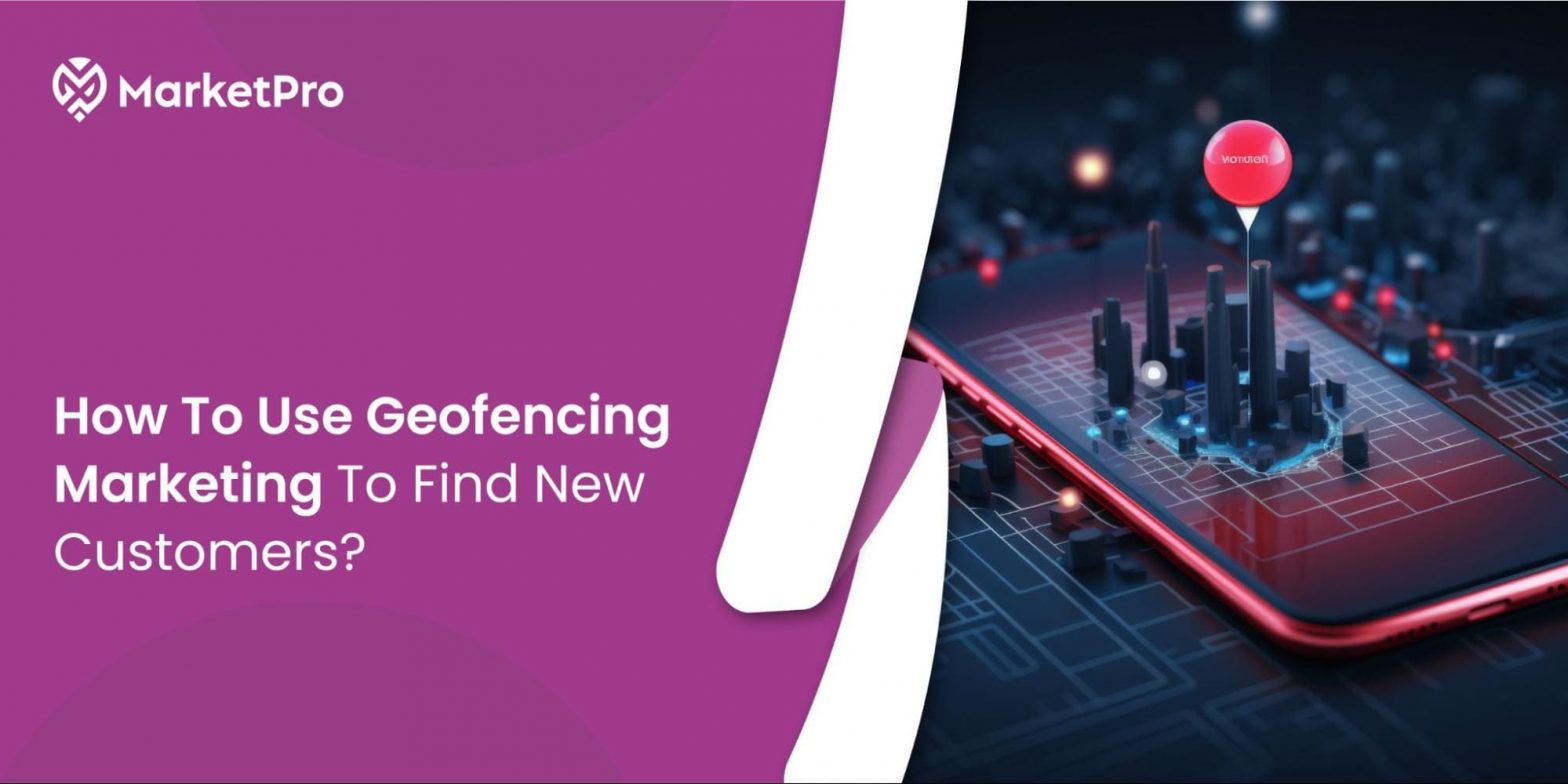What is Geofencing Marketing?
In today’s competitive business environment, it is important for marketers to stay ahead of the game. Rather than targeting potential customers across the globe, marketers need to focus on specific areas. This is where geofencing marketing comes in.
Geofencing marketing is a modern strategy that allows businesses to target potential clients with precision and relevance.
It utilizes geographic boundaries and delivers tailored messages to users. When potential customers enter a specific area, they see personalized ads on their mobile devices.
But what exactly is geofencing marketing, and why is it expected to reach a global value of around 12.2 billion by 2032.
Geofencing marketing is not some futuristic fantasy. It is a real marketing strategy with a global value of 2.22 billion in 2023. It is being used by companies like Starbucks to attract consumers and generate leads.
In this blog, we discuss how geofencing marketing works and why it is so relevant in the current status quo.
How does the Geofencing System work?
Geofencing goes way beyond traditional advertising. It can be used by all sorts of businesses. From restaurants to retailers, everyone can use geofencing marketing to their advantage. But how does it work? What is the technology behind it?
As the name suggests, geofencing marketing works by using GPS, Wi-Fi and RFID technologies. Companies use it to create virtual, geographic-specific boundaries around certain locations.
When your consumers enter this location, targeted actions occur. They receive your ads through push notifications, in-app advertisements and text messages. If you are a business looking to adopt the strategy, know that you can customize your campaign by using the location, behavior or preferences of your targeted audience. You can hence deliver relevant information such as promotion notification, to your audience.
Benefits of Geofencing Marketing Campaigns
Geofencing is widely used across industries for its ability to enhance customer experience and search engine optimization. It also optimizes marketing efforts with precise targeting capabilities. But that is not all. Your brand can enjoy a great many other benefits by adopting geofencing solutions.

1. Targeted Advertising with Laser Precision
By using geofencing marketing strategies, you can create virtual boundaries around your stores, venues, or events. You can hence attract customers who are already interested in your offer. As soon as they enter your desired location, they will see your ad and will be compelled to make a purchase.
Domino’s, for example, used geofencing to target mobile users near competitor stores with special offers, resulting in a 30% increase in orders.
2. Boost Customer Engagement: Right Place, Right Time
Macy’s, a leading brand, was able to generate 15% higher sales through geofencing marketing. They did this by simply sending discount notifications to users who were near the stores. So if you thought geofencing marketing was only about showing ads, you are in for a treat.
It is actually about sparking engagement with your brand. With this strategy, you can send personalized push notifications flaunting amazing discounts. You can also send gamification loyalty program reminders or even event invitations.
3. Drive Foot Traffic and Sales: Location-based Conversions
The purpose of marketing is turning interest into sales. Geofencing excels here by directing potential customers already in the vicinity toward your physical location. Imagine a scenario where users searching online for specific health and beauty products receive coupons and store location information upon entering a geofence around a pharmacy like Walgreens.
This targeted approach can significantly increase foot traffic and ultimately boost sales. Walgreens, for instance, saw a 20% increase in sales through geofencing campaigns like display ads, Organic SEO. These campaigns targeted users looking for specific health and beauty products online.
4. Unlock Real-time Insights and Data: A Goldmine for Future Strategies
Geofencing marketing is not a short-term solution for companies. It is actually a great way to gather unique data. When customers enter your vicinity, you can collect data about their patterns to see how well a message attracts them.
You can even identify areas with high concentrations of potential customers. This will help you tailor your messaging accordingly. Additionally, it will help you measure the success of your geofencing efforts in real time.
How to Set Up a Successful Geofencing Marketing Campaign
Setting a geofencing marketing campaign may seem like a daunting task. In reality, you can do this by a well-defined strategy. Here is how.
Step 1: Define Your Target Audience and Goals
First, identify your ideal customers and set clear objectives for your marketing campaign. Assess the kind of people you want to reach. Moreover, set clear goals such as increasing brand awareness or driving sales.
Step 2: Choose Your Geo-fences
Next, assess where you are most likely to find your target customers. Select geo-fences around locations. For example, if you are promoting outdoor gear, consider geo-fences around popular hiking trails. You can also choose camping grounds, and outdoor sporting goods stores.
Step 3: Craft Compelling Ad Creatives
Design eye-catching visuals and compelling messaging tailored to your audience. Create ads that highlight special offers, promotions, or events that will resonate with your target customers. Ensure the ad content is relevant and engaging to capture the attention of your potential customers.
Step 4: Set Up Your Geofencing Campaign
Partner with a geofencing marketing platform or app. This will help you define your geo-fences, target audience parameters, and ad delivery schedule. Determine the triggers for ad delivery.
Step 5: Monitor and Analyze Performance
Next, track your brand’s key metrics, like impressions, clicks, and website visits to assess campaign effectiveness. Monitor how many users enter your geo-fences. See your ad, and visit your website or store. Collecting this data will help you understand which strategies and ads work best for your audience.
Step 6: Refine and Optimize
Once you have collected the data, it’s time to refine your targeting and messaging. For future geo-fences, make sure you use places that generate the highest foot traffic. Moreover, you can change your ad offers based on the data you collect.
Geomarketing Solutions for Businesses
Your brand can achieve the right results with geofencing marketing companies. You can also enhance customer relationships with this strategy. But this bags the question: is there only one way to implement geofencing marketing? Certainly not. Here are different ways to go about it.
| Radius Targeting | Pick a specific location and create a geo-fence. This can be your store or your brand’s location. |
| Polygon Targeting | Pick a specific street that generates high foot traffic and create a geo-fence around it. |
| Time-Based Geofencing | Set up a specific timeframe for specific business hours or events. |
| Time-Based Geofencing | Create a geo-fence around your location to compel repeat users. |
| Competitive Geofencing | Create a geofence around the location of a competitor. Make sure your ads convey your unique selling point. |
Choosing the best Marketing Agency for your next campaign- Market Pro has your back
Geofencing marketing is taking the internet by storm. You can create a virtual boundary around a point or an area to attract first-time or repeat customers. Additionally, through geofencing analysis, companies can analyze vast amounts of customer behavior data and use it to optimize their strategies.
Innovation and creativity are the backbone of Market Pro. Rather than relying on traditional methods, we use the latest techniques and strategies to custom-make your marketing campaign.

